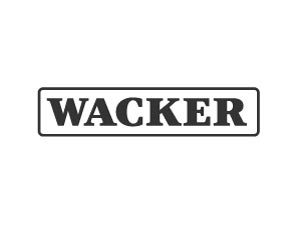More news
- Asian paint regulatory round up – Indonesian exterior paint still uses lead, warns W...
- Nigeria’s paint industry navigates regulatory changes and economic challenges amid p...
- Focus on the global coatings market: Global coatings market outlook
- Ask Joe Powder – October 2024
- Chinese paint majors look to domestic consumer sales as commercial real estate slumps

Munich-based chemical group Wacker has conferred this year’s Alexander Wacker Innovation Award to Dr Lars Zander and Dr Volker Stanjek from the Wacker Silicones business division, in recognition of their work on the development of new binders.
The chemists found a way to combine hard phenyl silicone resins with elastic hybrid polymers, so as to produce products with enhanced property profiles.
Such binders are well suited to the formulation of high-performance, extremely strong adhesives and sealants, wood varnishes and floor-coating materials.
The award, which includes €10,000 prize money, was presented during Wacker’s annual research symposium held in Burghausen, Germany.
Volker Stanjek, a chemist in the Construction Silicones business unit, is the first employee to win the coveted award for the second time.
The silanes expert was part of a trio that received the award back in 2008 for their work on alpha-silanes.
"Through his work on developing alpha-silane technology, Mr Stanjek laid the chemical groundwork for the innovation that we are honouring today,” said Wacker Executive Board member Dr Christian Hartel at the award ceremony.
"This illustrates the innovation potential which this technology has to offer.”
Wacker has been producing silane-terminated polymers based on the alpha-silane technology under the brand name GENIOSIL® STP-E since 2005.
These hybrid polymers, which cure rapidly in air by virtue of their reactive silyl groups, are chiefly used in adhesives and sealants, such as parquet adhesives.
Wacker has achieved considerable success with such products in recent years.
Now, Zander and Stanjek went a step further.
They combined the extremely elastic hybrid polymers with relatively hard phenyl silicone resins to develop binders that possess high mechanical strength – a combination that cannot otherwise be achieved in a binder with either silicones or hybrid polymers.
Different silicone resins can now be used to vary properties, such as hardness, elasticity and tensile strength, to match new application areas.
The new binders are thus, suited not only to the formulation of extremely strong adhesives but also to the production of joint mortars, crack-filling compounds, paints, tile adhesives and wear- resistant coatings for concrete floors.
"Thanks to Lars Zander’s and Volker Stanjek’s new technology, we can now offer binders that stand up to any comparison with polyurethane and epoxy based systems in terms of hardness and tensile strength and which have several benefits,” emphasised Hartel.
The new products have more to offer than very good mechanical properties.
Unlike many competition products, they are also free of isocyanates and heavy-metal catalysts.
"Providing sustainable products is increasingly important.
"This makes our new binders very attractive for customers,” said Hartel.
The Wacker Executive Board
member was also optimistic about future marketing opportunities.
"This technology gives us the capability to develop tailor-made binders for various adhesives and coatings suited for new, lucrative applications.
"The demand for such products will increase significantly over the next years.”
About the ‘Alexander Wacker Innovation Award’
Since 2005, the Munich-based chemical company has honoured employees’ outstanding R&D work at its annual research symposium.
Named after the company’s founder, the €10,000 ‘Alexander Wacker Innovation Award’ is bestowed alternately in the categories of product innovation, process innovation and basic research.



